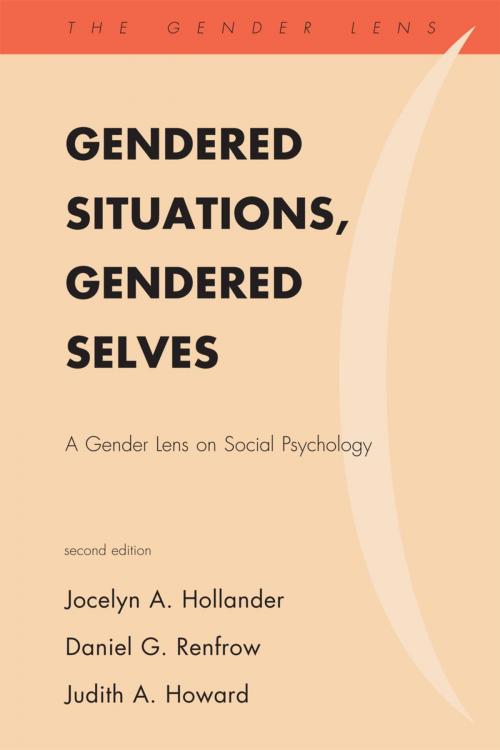Gendered Situations, Gendered Selves
A Gender Lens on Social Psychology
Nonfiction, Health & Well Being, Psychology, Social Psychology, Social & Cultural Studies, Social Science, Gender Studies, Women&| Author: | Jocelyn A. Hollander, Daniel G. Renfrow, Judith A. Howard | ISBN: | 9781442208643 |
| Publisher: | Rowman & Littlefield Publishers | Publication: | January 16, 2011 |
| Imprint: | Rowman & Littlefield Publishers | Language: | English |
| Author: | Jocelyn A. Hollander, Daniel G. Renfrow, Judith A. Howard |
| ISBN: | 9781442208643 |
| Publisher: | Rowman & Littlefield Publishers |
| Publication: | January 16, 2011 |
| Imprint: | Rowman & Littlefield Publishers |
| Language: | English |
The second edition of Gendered Situations, Gendered Selves has been updated throughout, and is an ideal introduction to the discussion of gender in social psychology.
The book examines the basic underpinnings of everyday interaction: from how we think, to who we see ourselves and others to be, to how we interact with others. Each of these processes is based on both social psychology and gender (as differentiated from sex), as well as our racial backgrounds, ethnic heritages, socioeconomic circumstances, sexualities, and national histories. The authors present and critique each of the major theories of social psychology, social exchange, social cognition, and symbolic interaction. In doing so, the book introduces a full array of key concepts in social psychology—perception, stereotyping, attribution, self-presentation, impression management, defining social situations, exchanging resources, and balancing power and dependence in social relations. The book also discusses two fundamental aspects of human behavior—the dynamics of helping and harming. The second edition incorporates discussions of contemporary psychological and sociological research and features powerful new examples, including 9/11 and the election of Barack Obama.
The second edition of Gendered Situations, Gendered Selves has been updated throughout, and is an ideal introduction to the discussion of gender in social psychology.
The book examines the basic underpinnings of everyday interaction: from how we think, to who we see ourselves and others to be, to how we interact with others. Each of these processes is based on both social psychology and gender (as differentiated from sex), as well as our racial backgrounds, ethnic heritages, socioeconomic circumstances, sexualities, and national histories. The authors present and critique each of the major theories of social psychology, social exchange, social cognition, and symbolic interaction. In doing so, the book introduces a full array of key concepts in social psychology—perception, stereotyping, attribution, self-presentation, impression management, defining social situations, exchanging resources, and balancing power and dependence in social relations. The book also discusses two fundamental aspects of human behavior—the dynamics of helping and harming. The second edition incorporates discussions of contemporary psychological and sociological research and features powerful new examples, including 9/11 and the election of Barack Obama.















